#India Sri lanka defence cooperation
Text
India-Maldives Relationship
Present Development:
The foundation stone for the project was laid by Indian Defence Minister Rajnath Singh and his Maldivian counterpart, Mariya Didi. The project is a joint effort between India and the Maldives to develop the Maldives National Defence Forces Coast Guard ‘Ekatha Harbour’ and repair facility at Sifavaru.
One of India’s largest grant-in-aid projects in the Maldives, the Coast Guard Harbour and Repair Facility aims to improve the Maldives’ maritime security capabilities.
Both ministers reiterated the need of preserving regional peace, stability, and security during the Indian Defence Minister’s visit, and they acknowledged the need to cooperate to address shared security issues.
They reaffirmed their commitment to safeguarding these principles and emphasised the significance of respecting international law and the rules-based international order.
The Ministers agreed to investigate future opportunities for cooperation, especially in the areas of defence trade, capacity building, and joint exercises, according to the joint press statement released after Mr Singh’s visit.
Notably, this was the first visit by an Indian defence minister to the Maldives in eleven years, underscoring the strengthening of their bilateral relations.
Background
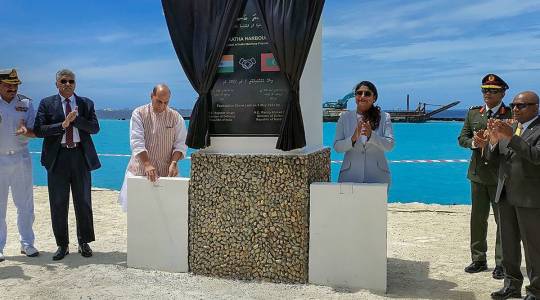
Military Operations
Operation Cactus: In 1988, terrorists from Sri Lanka attempted to overthrow the government in the Maldives. Maumoon Abdul Gayoom, the Maldives’ then-president, asked India for military aid. India’s military intervention, “Operation Cactus,” which was undertaken in response, was successful in thwarting the attempted coup and restoring the Maldivian government. This operation is regarded as a significant turning point in India’s foreign policy and regional power role.
Joint military drills: Over the years, India and the Maldives have held several joint military drills to increase interoperability and cement defence ties. These drills include the “Ekuverin” series of drills, which concentrate on counterterrorism and counterinsurgency operations.
Cooperation in surveillance and intelligence: In the Indian Ocean, India and the Maldives also work together to share surveillance and intelligence. To combat piracy and other marine dangers, this also entails the installation of radars and other technology to monitor maritime traffic.
Increasing trade and investment with the Maldives is one way to strengthen economic ties. India can also look into joint venture opportunities in industries like tourism, fishing, and renewable energy.
Increasing connectivity: India can assist the Maldives in building out its infrastructure, particularly in the areas of transport and connectivity, which would enhance the country’s efforts to promote tourism and economic growth.
Increasing security cooperation: India may keep giving the Maldives security advice and training, and it can look into possibilities for combined patrols and exercises to improve marine security in the area.
Increasing cultural exchanges and cooperation has the potential to strengthen people-to-people ties between India and the Maldives, which share a rich cultural legacy.
Addressing climate change: Given that both India and the Maldives are susceptible to its effects, there is room for cooperation on topics including marine conservation, sustainable tourism, and renewable energy.
India may continue to assist the Maldives in international fora and collaborate with them on matters of shared concern like regional security, anti-terrorism, and disaster management.
https://believersias.com/
1 note
·
View note
Text
Maritime Safety & Security 🧭🛳
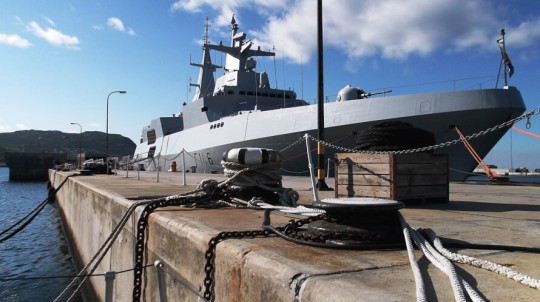
The Indian Ocean region faces many traditional and non-traditional safety and security challenges including piracy, armed robberies at sea, terrorism, human trafficking, irregular movement of persons, drugs trafficking, illicit trafficking in wildlife, trafficking of weapons, crimes in the fisheries sector such as IUU fishing, degradation of ocean health, unlawful exploitation of marine resources and climate change with its related repercussions on environmental security.Covering a vast maritime zone of nearly 68.56 million sq. km. and incorporating coastal states from South Africa in the west, running up the eastern coast of Africa, along the Gulf to South and Southeast Asia, ending with Australia in the east, IORA serves as the ‘first line of defence’ to build upon existing national, regional and international measures, thereby enhancing coordination and supporting harmonised international Maritime Safety and Security (MSS) collaboration.
Recognising that a safe and secure Indian Ocean is important for socio economic development, IORA assigned MSS in 2011 as the top priority area of focus. The importance of the Indian Ocean as a major transit area for international trade is evident in the fact that half of the world's container ships, one third of the world's bulk cargo traffic and two thirds of the world's oil shipments cross its waters annually.
For IORA, Maritime Security includes elements of international peace and security, sovereignty/territorial integrity/political independence, security from crimes at sea, security of resources and environmental security; while Maritime Safety is concerned with training (both technical and personnel), transport, construction and equipment related issues, assistance in distress situations, etc.
IORA has been addressing MSS in the Indian Ocean through a broad range of activities to enhance international cooperation in security and governance to successfully tackle the challenges faced by the region. The IORA Leaders’ Summit held in March 2017, in Jakarta, Indonesia, highlighted the prioritization of these concerns through its theme, “Strengthening Maritime Cooperation for a Peaceful, Stable, and Prosperous Indian Ocean”.
The ‘IORA Working Group on MSS’, also known as the WGMSS, established in September 2018 and presently chaired by Sri Lanka for a period of two years, is currently advancing the IORA Action Plan (2017-21) with Member States developing a regional agenda through a ‘MSS Work Plan’. The Second IORA Meeting of Experts on MSS held in November 2017 in India, provided an outcome document entitled “Blueprint for Maritime Safety and Security in IORA”, which serves as a base document for initiatives to be implemented by the Working Group.
0 notes
Text
India, Sri Lanka agree to increase 'complexity' of bilateral exercises: MoD
India and Sri Lanka on Thursday agreed to increase intensity of bilateral military exercises and vowed to avail maximum benefits from each other’s experience and capacities, a move that came amid China’s attempts to expand its influence in the Indian Ocean region.
The two sides reviewed their defence and security cooperation at the seventh India-Sri Lanka annual defence dialogue that took place…
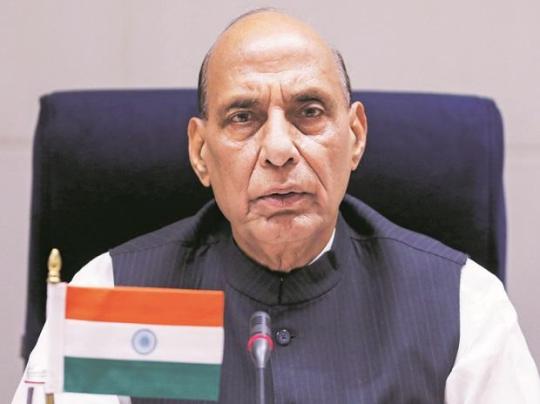
View On WordPress
0 notes
Text
Indian Army chief General Naravane arrives in Sri Lanka to boost bilateral defence ties
Indian Army chief General Naravane arrives in Sri Lanka to boost bilateral defence ties
Image Source : PTI
Indian Army chief General Manoj Mukund Naravane
Indian Army chief General Manoj Mukund Naravane arrived in Sri Lanka’s Colombo on Tuesday on an official visit during which he will meet the top civilian and military leadership of Sri Lanka and discuss avenues for further enhancing bilateral defence cooperation.
Gen Naravane, who arrived here on a four-day visit at the…
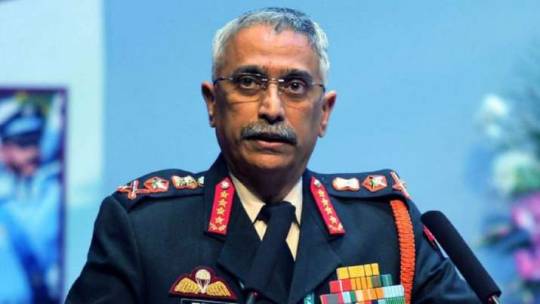
View On WordPress
#bilateral defence ties#Exercise Mitra Shakti#General MM Naravane#Harsh Vardhan Shringla#india sri lanka#India Sri lanka defence cooperation#India Sri lanka defence ties#India Sri Lanka relations#Indian Army chief#Indian Army chief General Manoj Mukund Naravane#MM Naravane#MM Naravane sri lanka visit#Mukund Naravane#Mukund Naravane Sri Lanka#Naravane sri lanka visit#Sri Lankan Military Academy
0 notes
Link
Amid concerns over growing Chinese footprints in Sri Lanka, the island nation is looking to boost defence and security ties with India with an integrated country strategy paper drafted under new high commissioner Milinda Moragoda, who finally took charge here on August 30, calling for a significantly enhanced cooperation.
from Times of India https://ift.tt/3jKhsZq
from As China tightens grip, Lanka looks to boost India def ties
Read Full Article
0 notes
Text
US Conducts a “Freedom of Navigation Operation” Against India, While Courting It for Alliance Against China
Only a day after exercising with India in a Quad + France naval drill
— Krishn Kaushik | April 9, 2021 | Anti-Empire
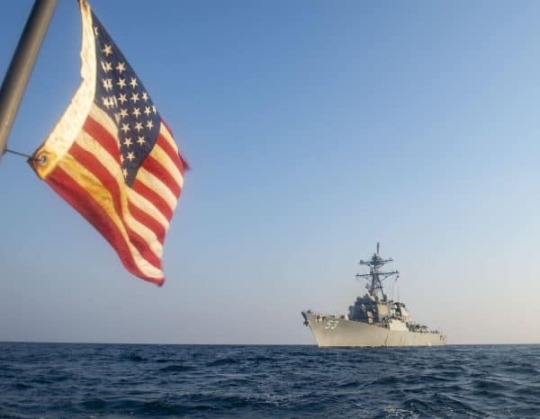
In A Highly Unusual, even though not unprecedented move, the US Navy conducted a Freedom of Navigation Operation (FONOP) in the Indian Ocean region, and its warship entered India’s Exclusive Economic Zone (EEZ) near Lakshadweep without seeking prior consent from India. The US Navy said that the operation was consistent with international law and challenged India’s “excessive maritime claims”.
In a statement issued on April 7 by the 7th Fleet of the US Navy, which is the largest forward deployed naval fleets of the US, it said that its Arleigh Burke-class guided missile destroyer USS John Paul Jones (DDG 53) “asserted navigational rights and freedoms approximately 130 nautical miles west of the Lakshadweep Islands, inside India’s exclusive economic zone, without requesting India’s prior consent, consistent with international law”.
“India requires prior consent for military exercises or maneuvers in its exclusive economic zone or continental shelf, a claim inconsistent with international law. This Freedom of Navigation Operation upheld the rights, freedoms, and lawful uses of the sea recognized in international law by challenging India’s excessive maritime claims.”
The statement said that the US forces “operate in the Indo-Pacific region on a daily basis” and “all operations are designed in accordance with international law and demonstrate that the United States will fly, sail and operate wherever international law allows”.
However, the statement also stressed that the US forces conduct “routine and regular Freedom of Navigation Operations (FONOPs), as we have done in the past and will continue to in the future” and these operations are “not about one country, nor are they about making political statements”.
There was no immediate statement from India.
The operation comes at a time when military cooperation between India and the US is increasing, and the two navies were involved in a joint exercise, along with navies of Japan, France and Australia in the eastern Indian Ocean region, in the La Pérouse exercise between April 5 and April 7 led by the French Navy.
Further, it happened just weeks after US Defence Secretary Lloyd Austin visited India as part of his first international tour since US President Joe Biden’s administration took over in January and conveyed Biden administration’s “commitment towards strengthening the bilateral defence relations between the two countries”.
But it is worth noting that this is not the first time that US Navy has conducted such an operation in India’s Exclusive Economic Zone. The US Department of Defence publishes an annual Freedom of Navigation Report which is “an unclassified report identifying the excessive maritime claims that US forces operationally challenged”, the FON Report for 2020 stated.
The report mentioned that the US Freedom of Navigation Program was formally established in 1979 and “consists of complementary diplomatic and operational efforts to safeguard lawful commerce and the global mobility of U.S. forces”.
“‘Excessive maritime claims’ are attempts by coastal States to restrict unlawfully the rights and freedoms of navigation and overflight and other lawful uses of the sea. These claims are made through laws, regulations, or other pronouncements that are inconsistent with international law as reflected in the Law of the Sea Convention. If left unchallenged, excessive maritime claims could permanently infringe upon the freedom of the seas enjoyed by all nations,” the report stated.
India was not among the countries mentioned in the 2020 report where the US forces “challenged” the claims. India was last mentioned in the 2019 report, along with 21 other nations that included China, Russia, Pakistan, Sri Lanka, Bangladesh, Maldives and Saudi Arabia. Before that, India was mentioned in the 2017 and 2016 reports as well.
According to the UN Convention of the Law of the Sea (UNCLOS), countries cannot prevent ships, either commercial or military, from using the Exclusive Economic Zone. But Indian laws mandate that any foreign military needs to inform before conducting any activity in India’s EEZ.
As per the maritime claims reference manual of US Navy’s Judge Advocate General’s Corps, India’s Territorial Waters, Continental Shelf, Exclusive Economic Zone & Other Maritime Zones Act of 1976 requires foreign warships to provide notice before entering territorial sea. The reference manual for India, till 2016, mentioned that the US “does not recognize this claim” and protested it in 1976, 1983 and 1997. Further, it mentioned that the US forces “conducted operational assertions” in Financial Years “1985 through 89, 1991 through 1994, 1996, 1997, 1999, 2001, 2007, and 2011”.
— Source: The Indian Express
0 notes
Text
Sri Lanka 'Priority One' partner in defence: India
Sri Lanka ‘Priority One’ partner in defence: India
India on Sunday described Sri Lanka as “Priority One” partner in the defence sphere and said the participation of its military aircraft in the 70th anniversary celebration of the Sri Lanka Air Force (SLAF) is indicative of the growing cooperation, camaraderie and friendship between the two militaries. The SLAF is celebrating its 70th Anniversary on March 2 and to commemorate the historical event,…
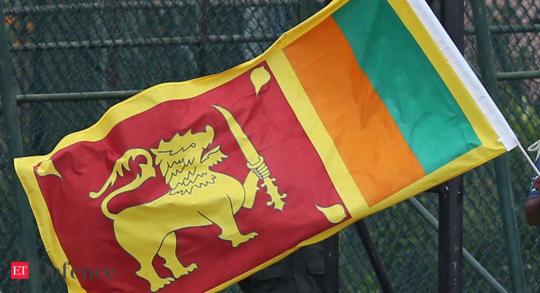
View On WordPress
0 notes
Text
Unilateral actions by some nations hurt Indian Ocean Region equilibrium: Army vice chief
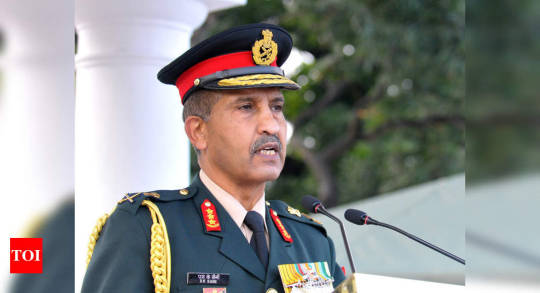
BENGALURU: Lt Gen SK Saini, vice chief of army staff, on Friday said India’s role in the Indian Ocean Region (IOR) is now a strategic obligation and not just a choice anymore. Reiterating the economic and strategic importance, Saini said India would need to have a robust roadmap to implement its strategy for the region amidst increased threat perceptions.
Its strategic location, economic and otherwise, and the slow but steady shift of power from the West to East have made the IOR a hub of global geo-political rivalry, Saini said as part of the Aero India webinar series organised by the Indian Military Review and Centre for Joint Warfare Studies with the ministry of defence.
Increasing interests of extra-regional forces and other non-traditional threats have made the region volatile and a potential global battlefield, Saini said and added: “While non-state actors and piracy threaten security and peace, unilateral actions by some nations are hurting the equilibrium.”
While he did not name any specific country, Saini said such actions were causing turbulence and giving rise to an intense superpower rivalry.
“…Some nations are not just questioning rights of the IOR nations to utilise their exclusive economic zones, but are also threatening the sovereignty of some of the strategic islands,” he said, adding that India’s role in the region, therefore, is now a strategic obligation in quest of peace and stability in the region.
Saini, while stating how global powers want to partner with India, appreciated the navy for its role in the IOR. “International engagement will be an important aspect towards maintaining peace and security in the region,” Saini said.
Chinese Aggression
In a specific discussion on Chinese challenges to India’s interests in the IOR, experts, including serving and retired Indian officers and experts from the US and Australia expressed concerns over the growing Chinese presence.
Rear admiral Jaswinder Singh, assistant chief of naval staff (foreign cooperation & intelligence), while echoing Saini’s comments said it was imperative that India further its role as a preferred security partner in the region.
Retired rear admiral of the US navy, Michael McDevitt pointed out how compared to eight years ago when the first vessel was deployed in the IOR, China is now looking at its 36th deployment, and said: “In the past few years, China hasn’t been hesitant in deployment of submarines too, and we may soon have a situation where they are in the region full-time. There is also the threat of aircraft carriers.”
Ex-navy chief Admiral (retd) Arun Prakash said that an intrusive and aggressive China poses a looming threat and pointed out how the country has been supplying technology and equipment to Bangladesh, Pakistan and Sri Lanka.
“We’ve lacked adequate insights into the Chinese mindset, probably because of inadequate scholarship and diplomacy, which has led to misreading of intent even as China has been sending adequate warning signals right from the 1950s. It is time that the government commission a white paper on China and even evolve a China-specific strategy even if that isn’t a public document,” Prakash said.
source https://bbcbreakingnews.com/2020/12/18/unilateral-actions-by-some-nations-hurt-indian-ocean-region-equilibrium-army-vice-chief/
0 notes
Text
National Security Advisor Ajit Doval Participates In Trilateral Maritime Meeting In Sri Lanka
National Security Advisor Ajit Doval Participates In Trilateral Maritime Meeting In Sri Lanka
[ad_1]
<!-- -->
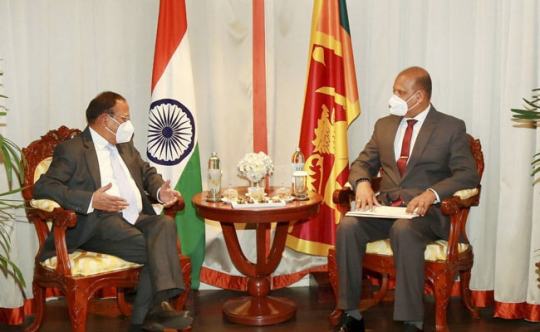
Ajit Doval also met Sri Lankan Defence Secretary Major Gen (Retd.) Kamal Gunaratne on Friday.
Colombo:
National Security Advisor Ajit Doval on Saturday took part in the high-level trilateral maritime dialogue among India, Sri Lanka and the Maldives.
Sri Lanka is hosting the fourth trilateral meeting on maritime security cooperation with India and the Maldives.
The meeting is…
View On WordPress
0 notes
Text
Ajit Doval Participates In Trilateral Maritime Meeting In Sri Lanka
Ajit Doval Participates In Trilateral Maritime Meeting In Sri Lanka
<!-- -->
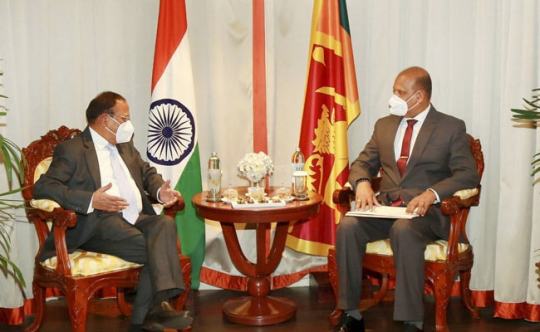
Ajit Doval also met Sri Lankan Defence Secretary Major Gen (Retd.) Kamal Gunaratne on Friday.
Colombo:
National Security Advisor Ajit Doval on Saturday took part in the high-level trilateral maritime dialogue among India, Sri Lanka and the Maldives.
Sri Lanka is hosting the fourth trilateral meeting on maritime security cooperation with India and the Maldives.
The meeting is taking…
View On WordPress
0 notes
Text
Ajit Doval Participates In Trilateral Maritime Meeting In Sri Lanka
Ajit Doval Participates In Trilateral Maritime Meeting In Sri Lanka
[ad_1]
<!-- -->
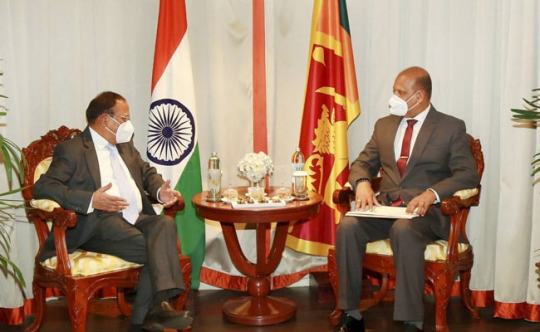
Ajit Doval also met Sri Lankan Defence Secretary Major Gen (Retd.) Kamal Gunaratne on Friday.
Colombo: National Security Advisor Ajit Doval on Saturday took part in the high-level trilateral maritime dialogue among India, Sri Lanka and the Maldives.
Sri Lanka is hosting the fourth trilateral meeting on maritime security cooperation with India and the Maldives.
The meeting is…
View On WordPress
0 notes
Text
Ajit Doval Participates In Trilateral Maritime Meeting In Sri Lanka Along With Maldives
Ajit Doval Participates In Trilateral Maritime Meeting In Sri Lanka Along With Maldives
[ad_1]
<!-- -->
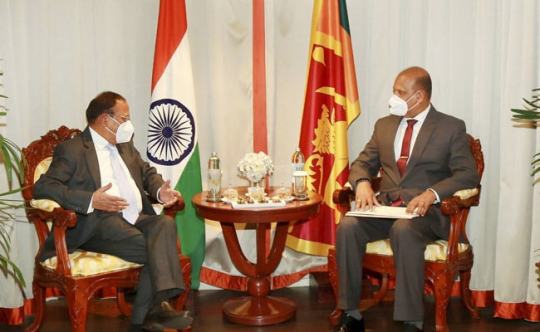
Ajit Doval also met Sri Lankan Defence Secretary Major Gen (Retd.) Kamal Gunaratne on Friday.
Colombo:
National Security Advisor Ajit Doval on Saturday took part in the high-level trilateral maritime dialogue among India, Sri Lanka and the Maldives.
Sri Lanka is hosting the fourth trilateral meeting on maritime security cooperation with India and the Maldives.
The meeting is…
View On WordPress
0 notes
Text
Ajit Doval Participates In Trilateral Maritime Meeting In Sri Lanka
Ajit Doval Participates In Trilateral Maritime Meeting In Sri Lanka
[ad_1]
<!-- -->
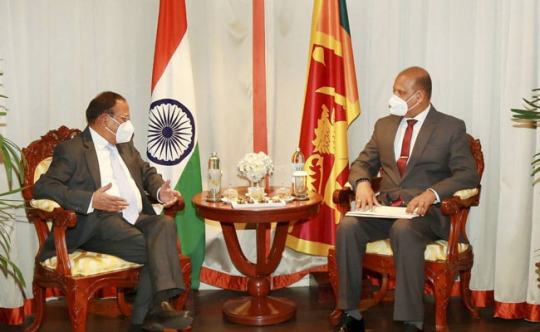
Ajit Doval also met Sri Lankan Defence Secretary Major Gen (Retd.) Kamal Gunaratne on Friday.
Colombo:
National Security Advisor Ajit Doval on Saturday took part in the high-level trilateral maritime dialogue among India, Sri Lanka and the Maldives.
Sri Lanka is hosting the fourth trilateral meeting on maritime security cooperation with India and the Maldives.
The meeting is…
View On WordPress
0 notes
Text
Ajit Doval Participates In Trilateral Maritime Meeting In Sri Lanka
Ajit Doval Participates In Trilateral Maritime Meeting In Sri Lanka
[ad_1]
<!-- -->
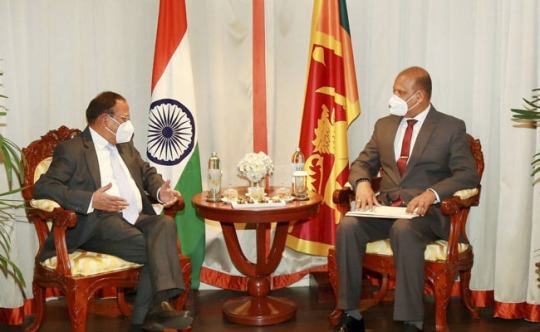
Ajit Doval also met Sri Lankan Defence Secretary Major Gen (Retd.) Kamal Gunaratne on Friday.
Colombo:
National Security Advisor Ajit Doval on Saturday took part in the high-level trilateral maritime dialogue among India, Sri Lanka and the Maldives.
Sri Lanka is hosting the fourth trilateral meeting on maritime security cooperation with India and the Maldives.
The meeting is…
View On WordPress
0 notes
Text
Doval participates in trilateral maritime meeting in Lanka
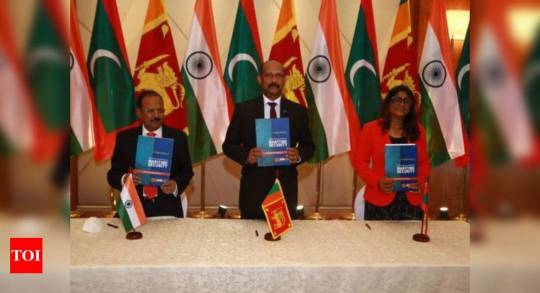
COLOMBO: National security advisor Ajit Doval on Saturday took part in the high-level trilateral maritime dialogue among India, Sri Lanka and the Maldives in Colombo, which was held after a gap of six years.
Sri Lanka is hosting the fourth trilateral meeting on maritime security cooperation with India and the Maldives.
The meeting is taking place after six years – the last meeting was held in New Delhi in 2014.
The discussions of the trilateral meeting were formalised through signing of the minutes by Doval, Sri Lankan defence secretary Major Gen (Retd.) Kamal Gunaratne and Maldivian defence minister Mariya Didi, the High Commission of India in Colombo said. It also tweeted pictures of the three participants.
Sri Lankan foreign minister Dinesh Gunawardena addressed the meeting as the chief guest. Foreign secretary Admiral Prof. Jayanath Colombage also attended the event, the Sri Lankan Foreign Ministry tweeted without providing details of the meeting.
Discussions of trilateral meeting among India, Sri Lanka & Maldives were formalized through signing of the minutes… https://t.co/W02SyzjdWT
— ANI (@ANI) 1606560582000
The meeting took place amidst China’s attempts to enhance its influence in the resource-rich Indo-Pacific region and the Indian Ocean.
China views the Maldives as key to its Maritime Silk Road project in the Indian Ocean as it has already acquired Hambantota port in Sri Lanka and Djibouti in the Horn of Africa.
The meeting was attended by observers from Bangladesh, Mauritius and Seychelles, the Sri Lankan military said Thursday.
Doval, who arrived in Colombo on Friday for the dialogue, on Friday met Didi and held a cordial and detailed discussion on deepening bilateral partnership with the key island nation in the Indian Ocean.
Doval also met Gunaratne on Friday and they agreed on several steps to further strengthen the “valuable” cooperation between the two countries which also contributes to peace and security in the region.
“NSA Ajit Doval met Major Gen(Retd.) Kamal Gunaratne, Defence Secretary of SriLanka & discussed matters pertaining to the growing defence and security partnership between the two countries,” the Indian High Commission in Colombo said in a tweet.
The high-level trilateral meeting is designed to initiate collective action on maritime security including maritime domain awareness, legal regimes, train in search and rescue, maritime pollution response, information sharing, curbing piracy drugs arms and contraband trafficking in the Indian Ocean region.
On Thursday, the External Affairs Ministry in New Delhi said the NSA-level trilateral meeting had served as an effective platform for cooperation among Indian Ocean countries.
“The meeting will provide an opportunity for discussion on issues pertaining to cooperation in maritime security in the Indian Ocean region,” the MEA said in a statement.
This is Doval’s second official visit to Sri Lanka this year. In January, he visited the island nation and discussed a range of bilateral issues, including strengthening cooperation in defence, intelligence sharing and maritime security with President Gotabaya Rajapaksa.
source https://bbcbreakingnews.com/2020/11/28/doval-participates-in-trilateral-maritime-meeting-in-lanka/
0 notes
Text
Cricket India may offer Sri Lanka $50 mn defence LoC
Cricket India may offer Sri Lanka $50 mn defence LoC
Cricket
Synopsis
Cricket Sri Lanka could become the second country in India’s neighbourhood to receive defence-related LoCs. India is working with Bangladesh to implement a $500 mn LoC offered a few years back. Among the key elements of the current Indo-Lankan military cooperation, almost 50% of all foreign military training slots in India are allocated to Lankan personnel.
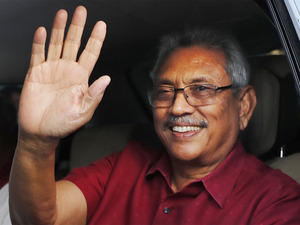
APEver since…
View On WordPress
0 notes